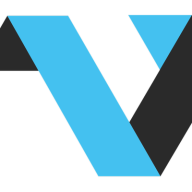

Find out in this report how the two Workload Automation solutions compare in terms of features, pricing, service and support, easy of deployment, and ROI.


IBM Workload Automation helps companies manage operations, portfolio management, resource collection, and dependency scheduling. It facilitates transitions from legacy apps to web services, executing batch processing for tens of thousands of jobs daily with hundreds of users.
Teams rely on IBM Workload Automation to optimize backend workloads, maintain service levels, and offer support in remote environments. Its interface and job scheduler are appreciated for their value and effectiveness. Users benefit from batch automation, multiple node job triggering, stability, and batch app tracking. It provides a holistic view to resolve technical issues and leverage AI for updates. Its user-friendly interface simplifies workload management. Performance, monitoring, request features for adding functionalities, and workload management are key advantages.
What are the most important features?IBM Workload Automation is implemented across several industries for diverse tasks. Companies executing high-volume batch processing, managing complex job dependencies, and transitioning from legacy systems find it valuable. Industries such as finance, healthcare, and manufacturing utilize it to maintain operational efficiency, enhance system performance, and automate critical processes.
VisualCron automates tasks like file encryption, scheduling SQL jobs, system integration, data workflow management, and application triggering, making it ideal for handling nightly syncs, FTP server file replacements, job scheduling, and invoice processing.
VisualCron provides an efficient automation solution with features like error and status reporting, API connections, PGP key generation, encryption file creation, and bulk SQL script execution. It simplifies task automation through its mail and event triggers, job variables, conditional execution, and logging with error alerts. Users benefit from its integration capabilities, scheduling flexibility, visual interface, and support for databases and credential management without extensive coding.
What are the most important features?Industries like finance, healthcare, and logistics implement VisualCron to automate data workflows, secure file transfers, and schedule critical tasks. It is used to streamline invoice processing, manage large-scale data operations, and ensure compliance through encryption and error reporting. VisualCron enhances operational efficiency, scalability, and security in various sectors, making it essential for businesses requiring robust automation capabilities.
We monitor all Workload Automation reviews to prevent fraudulent reviews and keep review quality high. We do not post reviews by company employees or direct competitors. We validate each review for authenticity via cross-reference with LinkedIn, and personal follow-up with the reviewer when necessary.